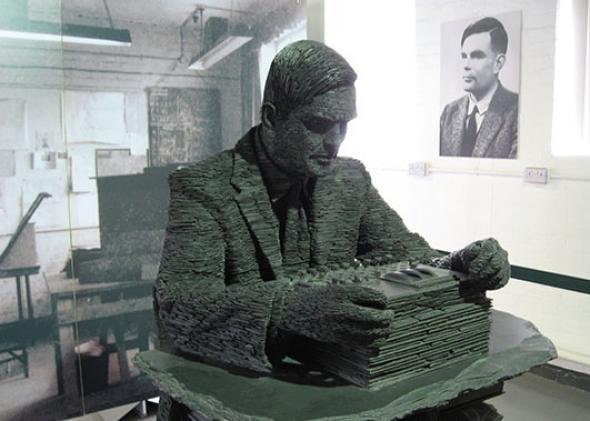Long deceased British codebreaker Alan Turing received a royal pardon Tuesday. Turing was convicted of homosexuality in 1952 and subsequently punished with chemical castration. The pardon was announced by Justice Minister Chris Grayling, who said in a statement, “Turing deserves to be remembered and recognized for his fantastic contribution to the war effort and his legacy to science. A pardon from the Queen is a fitting tribute to an exceptional man.”
Yet some criticize the action as too little, too late. “I just think it’s ridiculous, frankly,” home computing inventor Sir Clive Sinclair told the BBC. “He’s been dead these many years so what’s the point? It’s a silly nonsense.”
Author and computer scientist Jaron Lanier wrote in Slate about the problem of a posthumous pardon, wondering aloud if the practice has any lasting change on history or morality.
What about the almost 50,000 other men in the United Kingdom convicted in the same way? Do you have to be one of the highest-performing people of the century to merit a pardon under an immoral law that has been repudiated?
Turing is credited with saving the lives of millions during World War II by systematically deciphering messages used by German forces. According to the BBC, his efforts – in particular, breaking German U-boat Enigma codes – may have shortened the war by as many as two to four years.
Turing was also highly influential in the development of computer science and artificial intelligence. His eponymous “Turing test”, introduced in 1950, aimed to determine a machine’s ability to exhibit human intelligence. The New York Times explains:
In the test, a person asks questions of both a computer and another human — neither of which they can see — to try to determine which is the computer and which is the fellow human. If the computer can fool the person, according to the Turing test, it is deemed intelligent.
Read more about Turing’s impact on science and technology over at the BBC as part of their special 100th birthday series, published in 2012.
